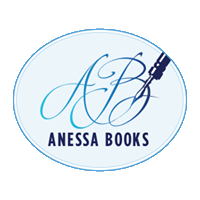 The most wonderful thing about being an author is that you get to promote your own point of view. As fiction writers, we frequently use the power of story to make a point and convince others to our way of thinking (see anything written by Lisa Cron, especially her more recent work for evidence of this). Nonfiction writers don’t even hide their message in a story, they say it straight out: “I believe this and you should too, here’s why.”
The most wonderful thing about being an author is that you get to promote your own point of view. As fiction writers, we frequently use the power of story to make a point and convince others to our way of thinking (see anything written by Lisa Cron, especially her more recent work for evidence of this). Nonfiction writers don’t even hide their message in a story, they say it straight out: “I believe this and you should too, here’s why.”
This is all fine and good. I firmly believe in people’s right to put forward their own opinions. Hell, I do so every week in this blog! But I do have a problem with an author who puts forward an idea as a fact that is just wrong and can easily be proven so.
A case in point is Gail Carriger in her most recent book The Heroine’s Journey, which I wrote about here. I pointed out that I had problems with how she describes the hero’s journey in that blog post, but I thought I’d give her the benefit of the doubt that perhaps I was reading it wrong, or had somehow misinterpreted what she’d written. But I recently had an opportunity to hear Carriger speak on the topic and was able to pose a question regarding her description of the hero’s journey. She reiterated what I had understood from the book and doubled down on her interpretation. Because this was a large (online) gathering, I wasn’t actually able to argue with her at that time, so I hope you’ll forgive but I shall do so now.
First let me say, that I love her take on the heroine’s journey. I think it’s a wonderful story structure and would love to write more stories using the concept of a hero becoming stronger by building community and lifting up others. I think it’s wonderful and something, honestly, we should all strive for in our own lives.
That being said, Carriger is simply wrong when she says that the hero’s journey is all about being an individual and striving to be the best regardless of who gets in your way. Just to be sure you all know the hero’s journey, you can find another blog post on the topic here, or just read through the beats here. This is a simplified version as described by Christopher Vogler in The Writer’s Journey (an excellent book!):
The Hero’s Ordinary World
Call to Adventure
Refusal of the Call
Meeting with the Mentor
Crossing the First Threshold
Tests, Allies, Enemies
Approach to the Inmost Cave
The Ordeal
Reward
The Road Back
Resurrection
Return with the Elixir
The part that Carriger disregards is that “Allies” bit. To her, the heroine’s journey is all about working with others and says that the hero’s journey is just the opposite. But as I pointed out to her, the protagonist of the hero’s journey also relies on others to achieve their goal. It’s right there and even Joseph Campbell in his book which defines the hero’s journey, The Hero With a Thousand Faces, uses numerous examples of the protagonist getting help from others and how the journey simply could not be done without such assistance. When I asked her about this, she answered that all allies of the hero are either killed or eventually betray the protagonist and therefore aren’t true allies.
Ummm… Star Wars? The original story.
It’s the ultimate hero’s journey. It was written with assistance from Campbell himself. Luke Skywalker’s allies neither die nor betray him. They all are uplifted by Luke’s success at achieving his goal. The whole point, as I see it, of the hero’s journey is that the hero returns to his ordinary world at the end of the story with his elixir (as Vogler calls it), which is whatever he was after in the alternate, magical world (be it a magical item or knowledge), and shares it with the rest of the world. At the end of the hero’s journey, in order to complete the journey he must make his ordinary world a better place, or else the entire journey will have been for naught.
So, while the heroine’s journey is wonderful and I fully believe in it, I also fully believe in the good of the hero’s journey. Both journeys end with our protagonist doing good for the world. We all get our happily ever after.
